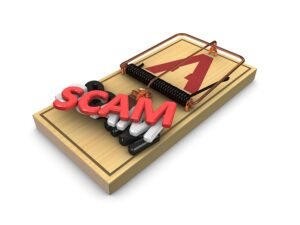Cynthia Rojas
August 16, 2014
The advertisements are so smooth, so good. The professionally designed magazine spread displays the logos of both a big bank and a college along with an offer to help students manage their financial aid with a super convenient debit card. Full of school spirit, the debit card is beautifully adorned with the school colors. It’s so easy to sign up too! Just sign on the dotted line and let the fun begin! What isn’t apparent on this day is the fact that this debit card program is a bad, bad deal. In fact, the program will end up hurting a student because it will drain the very financial aid that it is designed to hold. Let’s start with the per-swipe usage fees that can be bigger than the purchase being made. And then there’s penalty that the bank is going to charge the student for ‘lack of use’. Welcome to the world of Big Bank College Debit Card marketing.
I recently learned about College Debit Cards from Suzanne Martindale, an attorney for Consumers Union, which is leading an effort to reign in Big Banks in this latest chapter of Banks Behaving Badly. Ms. Martindale was a guest on The Consumer Team, a consumer advocacy talk radio program that I host on KRLD Radio in Dallas, Texas.
In both my interview with Suzanne and through research she provided, I learned a number of things about College Debit Card programs:
Push Marketing: The marketing campaigns to recruit college kids into these bad debit card programs is very aggressive. In many colleges, every student automatically received a card, according to a Consumers Union report. It is very in-your-face.
Colleges Are Positioned as Partners with Banks: In fact, in many cases they are partners because they’re receiving a portion of revenues generated from the debit card program, also known as a kick-back or commission, depending on your perspective. The convenient combination of logos and school colors are insidious and give the debit card programs the appearance of being endorsed, encouraged and preferred by the college.
College/Bank Debit Programs Discourage Use of Existing Bank Accounts: Most kids heading to college already have a bank account. To counter this competitive threat, the College/Bank Debit Card programs have established barriers that make setting up direct deposit with an existing bank account very difficult. The barriers consist of enough forms, procedures and signatures to frustrate even the most detail driven consumers. Put another way, they make it easy to say yes to their program by making lower cost alternatives nearly impossible to use.
Fees Out The Wazoo! If the overdraft fees don’t get you, then the transaction or lack-of-activity fees will. Some banks are even nailing students with Lack of Documentation Fees if they don’t mail back documents within a certain time.
Vote With Your Feet: We recommend that students and parents complain loudly to college administrators. Let them know that you aren’t going to be participating in their scam and urge them to present a more credible program to students. Beyond that, and just like any consumer transaction, shop the market for the best deal. Smaller community banks and credit unions often do an outstanding job of serving their communities.
The College Debit Card Scam is just the beginning of Big Banking’s story of profiteering at the expense of the American consumer. And even though more consumers than ever have figured out that big banks are not their friend, few people really understand just how much the deck of cards is stacked against them. To understand how big banking controls our nation, you have to become a student of history. You need to understand modern banking’s beginning with the Rothschild family in Europe as well as the Morgans in America. To understand the role that banking continues to play in our lives, you’ve got to follow the money.
If you’d like to get a deeper understanding of big banking in America, I recommend several books:
The Creature From Jekyll Island – G. Edward Griffin: Although the title suggests a science fiction novel, this book is hardly fiction. It’s about the formation of The Federal Reserve in 1911 on Jekyll Island, off the coast of Georgia. The book, which reads like a murder-mystery masterpiece, is sad and very troubling. After reading “Creature”, you’ll understand clearly the cartel that is Big Banking in America. You’ll understand their power and how it affects you as a citizen, taxpayer and a consumer.
The Big Short – Michael Lewis: Lewis is the author of several best-sellers including Money Ball, Liar’s Poker and Flash Boys. The Big Short is a very effective chronicle of the events that caused the economic crisis of 2007-2009. It vividly describes the mortgage meltdown along with the role that big banks played in the near destruction of our economy.
The Divide: American Injustice in the Age of the Wealth Gap – Matt Taibbi: Known for his writing in Rolling Stone Magazine, Matt Taibbi is able to connect the dots between income inequality in America and its impact on justice and our legal system. To be clear, this isn’t just another book about income redistribution, it’s an accurate accounting of how both the middle and lower classes of America are living in a much different America from the mega-uber-wealthy 1%. This is a book that will disgust you.
Be advised, your views regarding America, our political system and, yes, Big Banking will be forever changed by these books. Good luck, good reading and welcome to the world of truly understanding “Too Big to Fail” and “Too Big To Jail”.
Pete Thomson Founder/CEO – The Consumer Team
Editor’s Note: Pete Thomson is a 30 year veteran of radio and television broadcasting. He is CEO of McQ Media Inc, a full service marketing and advertising firm, in Dallas, Texas. McQ Media works in the areas of consumer and advertiser advocacy and produces The Consumer Team talk radio program.


